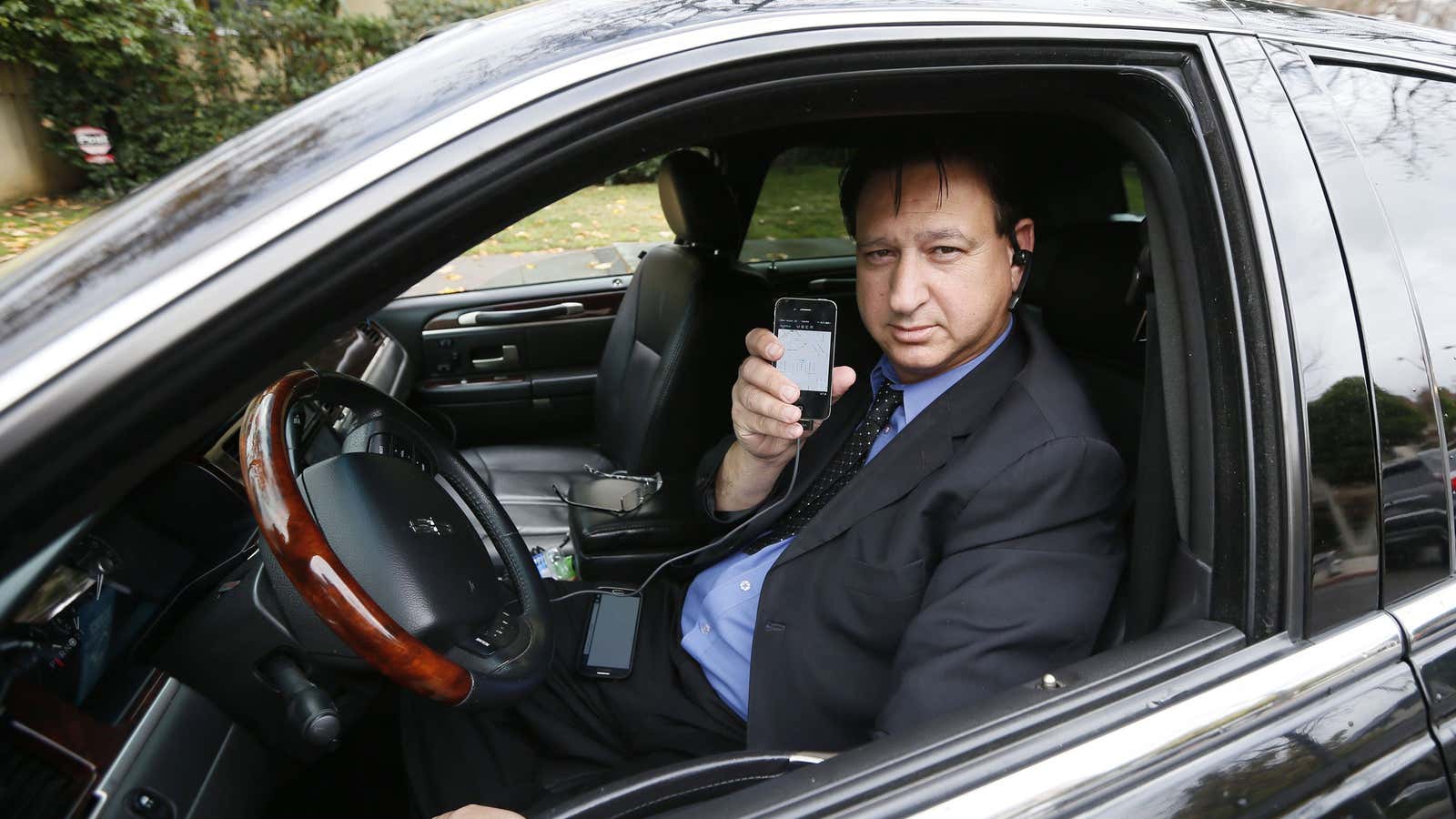The app-enabled car-hailing company Uber Technologies and the streaming music purveyor Spotify have quite a few things in common.
They’re two extremely well funded, highly valued startups that will presumably go public in the not-too-distant future. They both operate hugely popular mobile apps. Their services are disrupting (and upsetting) entrenched industries. And they both offer services that allow users to rent stuff relatively cheaply (vehicles, vast swathes of music), negating the need to own it.
So it makes perfect sense that the two companies are now partnering. In news that was widely telegraphed late last week, Uber and Spotify unveiled a partnership this morning that will let Spotify premium users (those that pay $10 a month) stream their music in participating Uber vehicles. No financial terms were disclosed, but it is not too difficult to figure out what each side has to gain.
From Spotify’s perspective, this is another step into the hugely lucrative market for in-car listening, which remains dominated, in the US at least, by broadcast radio.
Spotify CEO Daniel Ek told journalists on the conference call that this space remains a challenge: While his company has done well convincing people to use its service at work, at home, and on the go, it has been asking, ”How do we get in your car?”
The company already has deals with Ford and Volvo to stream music into new cars sold. Uber seems the next obvious step. “What we are noticing is more and more people are skipping owning their own car and going straight to Uber,” Ek said. “Millennials are taking up Uber in droves. This is a great way to get to massive amounts of users in a quick fashion.”
From Uber’s perspective, the partnership will enhance its users’ experience. The ability to choose the soundtrack for a ride could also entice Spotify users to choose Uber over other competing alternatives, including Lyft and traditional taxis. Spotify now has 12.5 million premium users, and 50 million active users in total. Leaked financial documents from last year and more recent analysis both suggest Uber’s active user base is much, much smaller.
Uber CEO Travis Kalanick dismissed the idea that Uber drivers, who have complained about working conditions before, would be upset by having to endure passenger’s weird music tastes. Drivers have the ability to opt out of the service, and even if they opt in, will still have control over it. “If somebody comes in with death metal and wants it really loud, the driver has control of how loud it will be,” he said.
At the very least, drivers can rest assured that they won’t have to listen to Taylor Swift, since she withdrew her entire catalog from Spotify last week.
